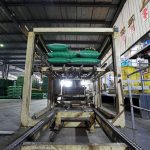
Local Sales and Use Tax Collection
Collecting State and Local Taxes in Texas
When selling taxable goods or services in Texas or selling to Texas customers you must collect the 6.25% state sales/use tax and the correct local tax. The local tax can not be more than 2% so the most tax that should be collected is 8.25%. State and local tax are reported on your Sales and Use Tax Return. Click here to use the Comptrollers online Sales Tax Rate Locator.
Local Sales Tax: based on the seller’s place of business. A “place of business” is defined as a store, office, or location that is operated by the sellers to sell the taxable items where they receive three or more orders during the calendar year. Sellers can have a single or multiple places of business, no place of business, or a temporary place of business such as a booth. In 2018 in the South Dakota vs Wayfair case the Supreme Court decided that states are allowed to impose tax responsibilities to sellers even if they don’t have a physical presence. In Texas an entity with annual gross receipts of $500,000 or more has economic nexus even if the entity has no physical presence in this state.
Use Tax: based on the location where the customer first stores, uses, or consumes the item.
The following table shows what local tax should be collected based on where the sale is consummated. This does not apply to special situations.
Local Taxing Entities:
- Cities
- Counties
- Special purposes district
- Transit authorities
What if city boundaries overlap?
There are areas in Texas where city boundaries overlap and while technically they exceed the 2% rate, the comptroller maintains the same rate and will share the revenue between the overlapping areas. For a list of these combined areas click here. (Combined tax rate areas)
Rules to Follow when determining if local tax is due in addition to local sales tax:
- 2% cap: You cannot collect more than a total 2% combined local sales and use tax. You must collect applicable local use taxes when you ship or deliver a taxable item into a local taxing jurisdiction with a higher rate of local use tax when the 2% cap is not reached at the location where the sale is consummated.
- Tax Type Order: You must collect applicable local use taxes in the following order: City, County, Special purpose districts, transit authorities.
- Different Tax Types: You cannot collect a local use tax if a local sales tax of the same tax type is due.
Examples of Special Situations:
Amusement Services: collect local taxes on where the services where performed.
Cable and Satellite TV Services: Local taxes on cable television are to be collected where the customer receives the service. Satellite services is exempt from local tax under the Federal Telecommunications Act of 1996.
Florist: Collect local taxes based on the location of the place of business that takes the order regardless of where the order is fulfilled or delivered.
Marketplace Sales: Marketplace providers that are engaged in business in Texas must collect and remit tax on all third-party sales. This tax is based on shipping destination, examples are Amazon, Ebay and Etsy. Marketplace providers are not eligible to use the single local use tax rate. Marketplace sellers are not responsible for collecting and remitting sales and use tax if the marketplace provider has certified that they will collect any applicable tax.
Motor Vehicle Parking: Collect tax based on location of the parking service.
Natural Gas and Electricity: Collect taxes based on location where the customer is receiving the gas or electricity. Residential use of gas is often exempt from county, transit/special purposes taxes and in many cities, city taxes as well. For a list of cities imposing sales tax on gas click here.
Nonresidential Real Property Repair and Remodeling Services: If you provide improvements to nonresidential properties through either repairs or remodeling services the entire job is subject to local tax, regardless if it is billed separated or lumpsum. Local taxes are to be collected depending on job site location.
Separated Contracts for New Construction or Residential Repair/Remodeling Jobs: Collect local tax on the separately stated charge for materials based on job site.
Waste Collection: Collect tax where the waste is collected or picked up for removal.
It is important to be aware of the various local sales and use tax rates because your company can be overpaying. If you think your company might have overpaid or underpaid state taxes or your company needs assistance finding the correct rates to collect give us call!






